- The Second China–Latin America and Caribbean Region Legal Professionals Exchange Program (Hangzhou Session) was successfully held at Zhejiang University.2025-12-18
- “If the World is a Family” — Student Exchange and Legal Practice Seminar between Newcastle Law School and Guanghua Law School2025-12-08
- LLM & SJD International Students of Guanghua Law School Attend Zhejiang International Legal Service Partnership Conference2025-12-04
In order to broaden students' international horizon, and improve the comprehensive quality, as well as getting enhancement of the understanding of theories and practices of common law system, Guanghua Law School of Zhejiang University organized the 2024 Summer in Oxford Program from July 14th to July 27th, 2024 at Somerville College, University of Oxford. This program is included in our Law School's “Campus Law-ruling Ambassadors Tour Overseas”. The enrollments of this program include Sixteen students from undergraduate or graduate phase of Guanghua Law School, who were led by Ms. Hong Jiaying, Secretary of Foreign Affairs.
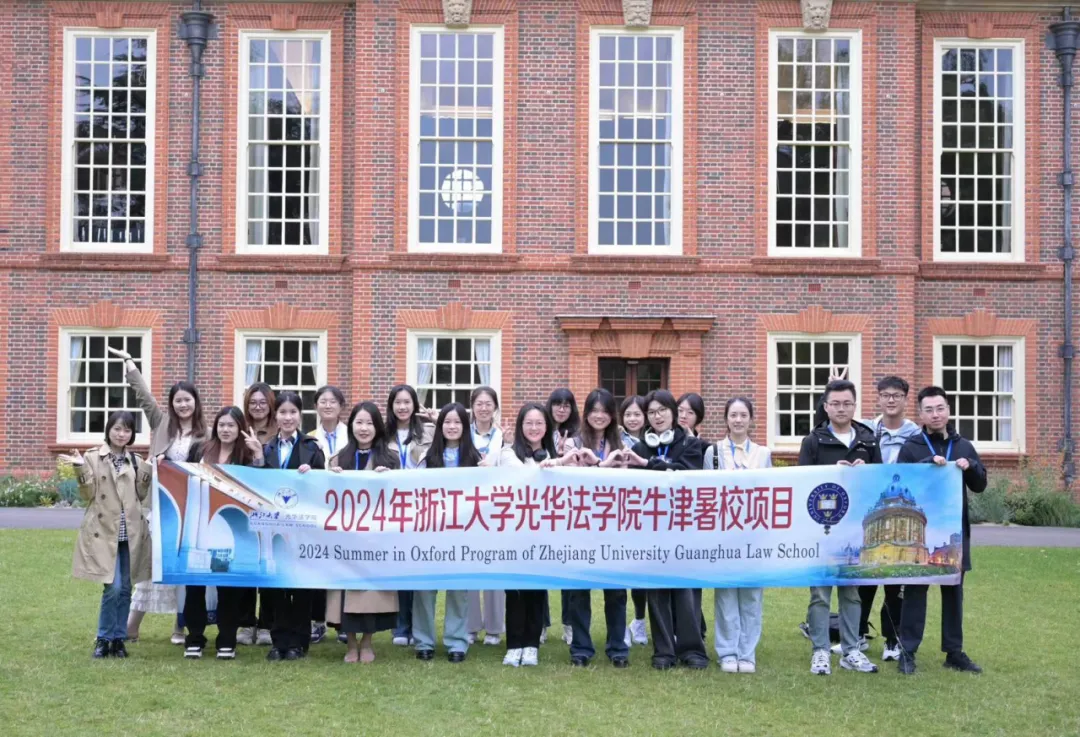
PART 1 Destined with the British Ancient Campus:To Broaden International Perspectives and Cooperate for a New Chapter in Education
On July 14, the students first attended a welcome ceremony organized at Somerville College, University of Oxford, where they heard a brief introduction of the University, including its history, hardware condition, and cultural traditions. Dave Simpson, the Director of the program Summer in Oxford Somerville, also attended the welcome ceremony and expressed his sincere welcome to the students. The University of Oxford is the oldest university in the English-speaking culture, with the earliest recorded lectures dating back to 1096. It has 39 colleges, each with its own independent governing body and financial support, a high degree of autonomy, and each with its own unique traditions and culture, the traditional collegiate system of which is one of the core features of the University of Oxford. Oxford's colleges are both academic centers and an important part of the social and cultural life of the students. Colleges regularly organize social events, sports competitions and cultural activities to promote interaction and friendship among students.
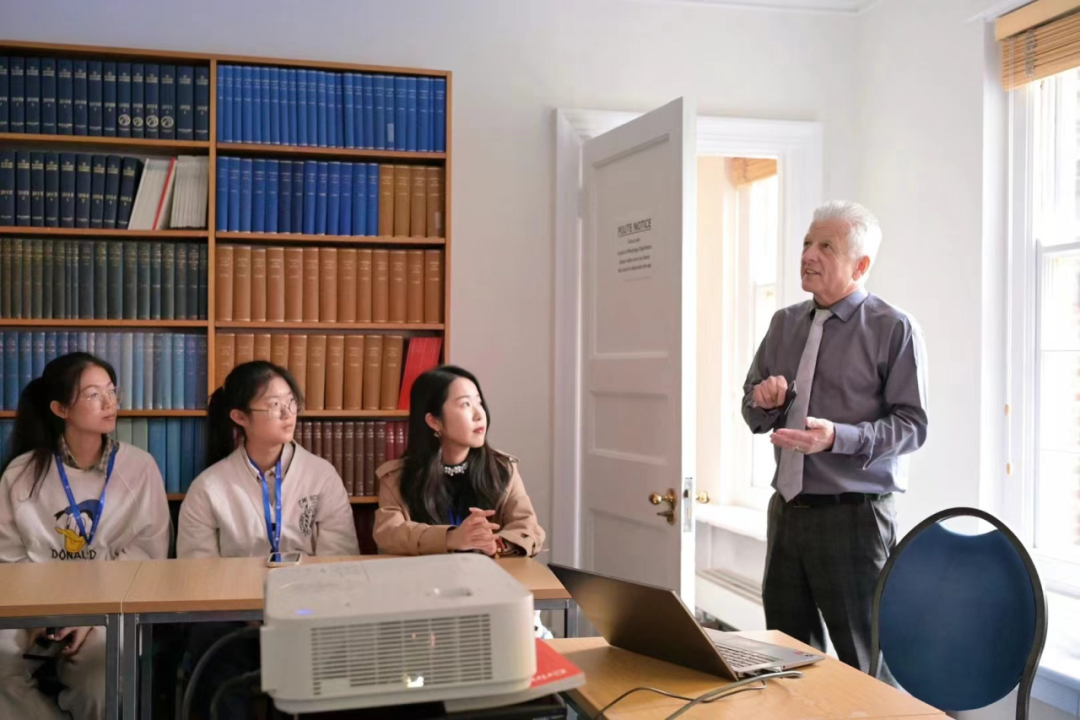
In the evening of the arrival day, students attended the welcome reception in full costume, communicating about their academic and life with students from all over the world, sharing their insights and experiences in a relaxed manner.The whole reception was characterized by a harmonious atmosphere and accompanied with constant laughter. Such social activity not only enriches the students' after-school life, but also provides a valuable social platform to promote the communication and cooperation between students of different cultural backgrounds.
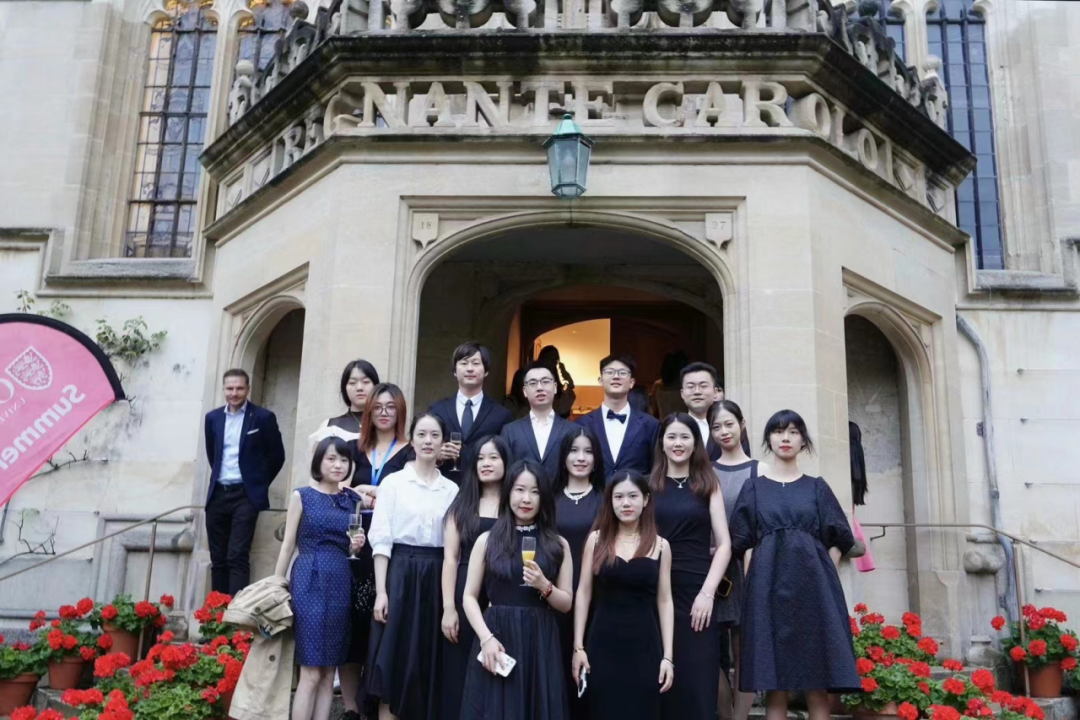
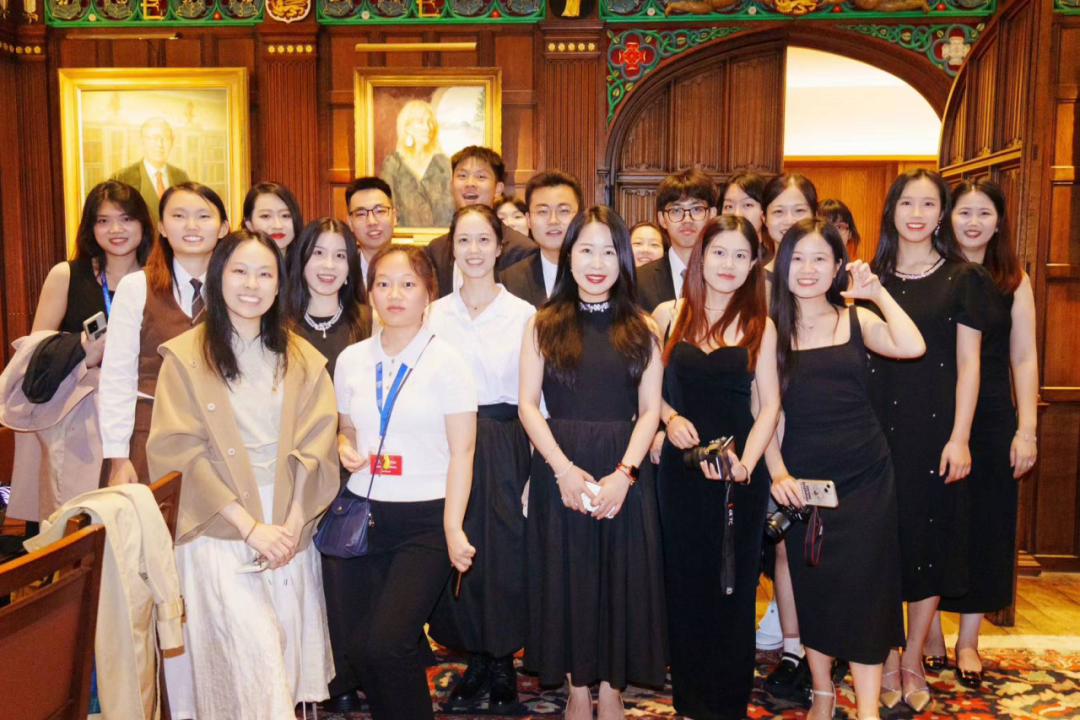
On July 18th, Oriel College of Oxford organized a teachers' interaction, which was attended by Prof. Gonzalo Rodriguez-Pereyra, Associate Prof. Christopher Bowdler, and Associate Prof. Nicholas Gaskill of Oriel College. The participating teachers shared with their past cooperation and project experience. Ms. Hong Jiaying presented souvenirs on behalf of the Law School to the cooperating organizations.
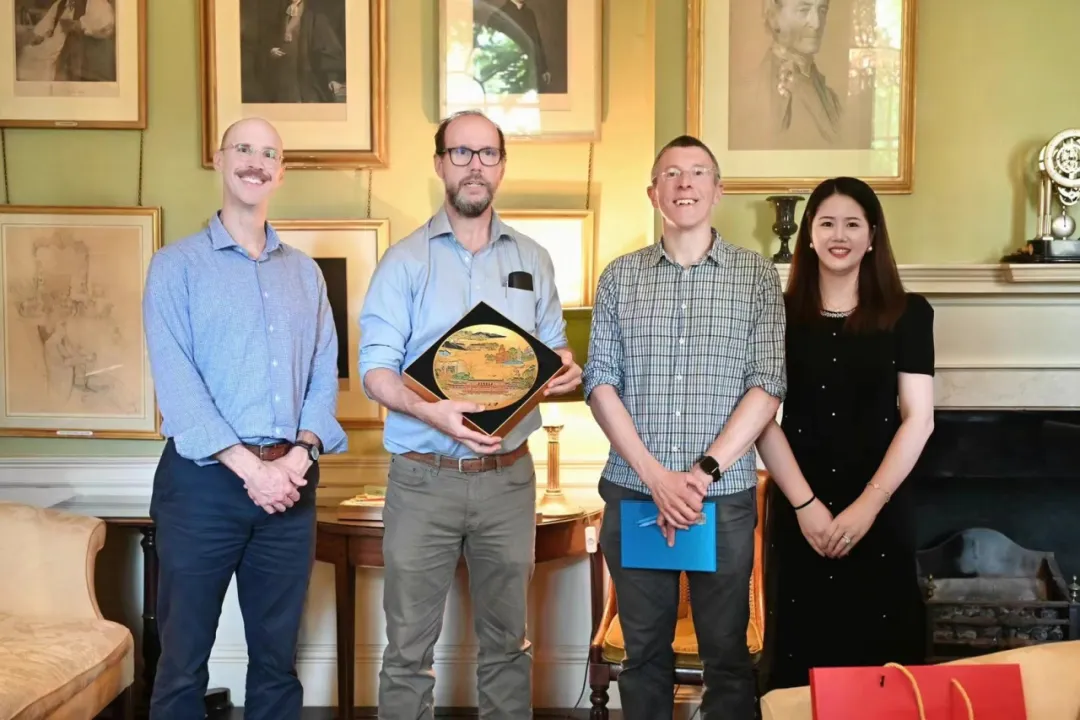
On July 21st, our students and teachers visited Oriel College. A current student of Oriel College led a tour of the campus, introducing the history of the college and her personal learning experience. The history of Oriel college dates back to the 1320s, and it is the oldest royal institution in Oxford, also known as King's College to show its royal status. During the English Civil War, Oriel was the post of the Oxford Parliament. Our students also introduced the general situation of ZJU Law School to the students of Oriel College and Somerville College, exchanged hot issues of current affairs and spreaded the voice of China's rule of law.
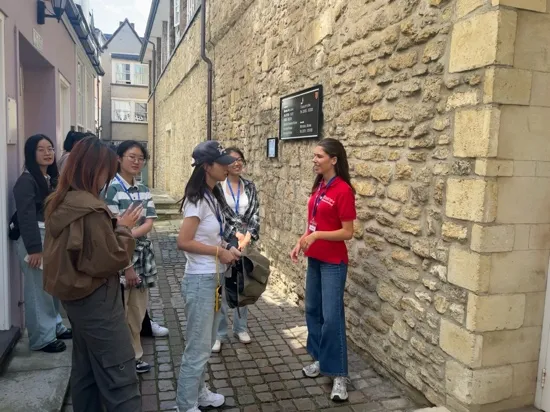
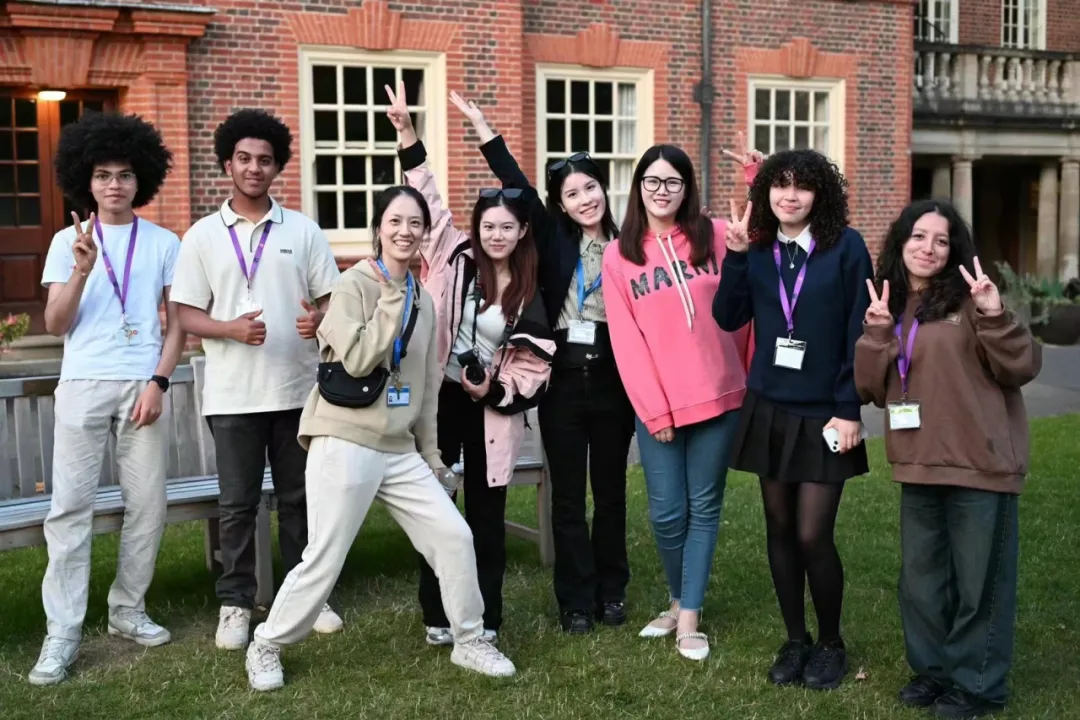
On July 25, our teachers and students participated in the graduation reception of the program, which marked the successful completion of and a step into a new chapter of studies for our students. With the solemn and warm atmosphere, the teachers and students attended in formal attire, showing a good spirit. Professor Stefan Enchelmaier of Lincoln College, University of Oxford, personally presented each graduate with a certificate of completion, and expressed his high hopes for the students, encouraging them to continue to pursue excellence and contribute to the society in the future.
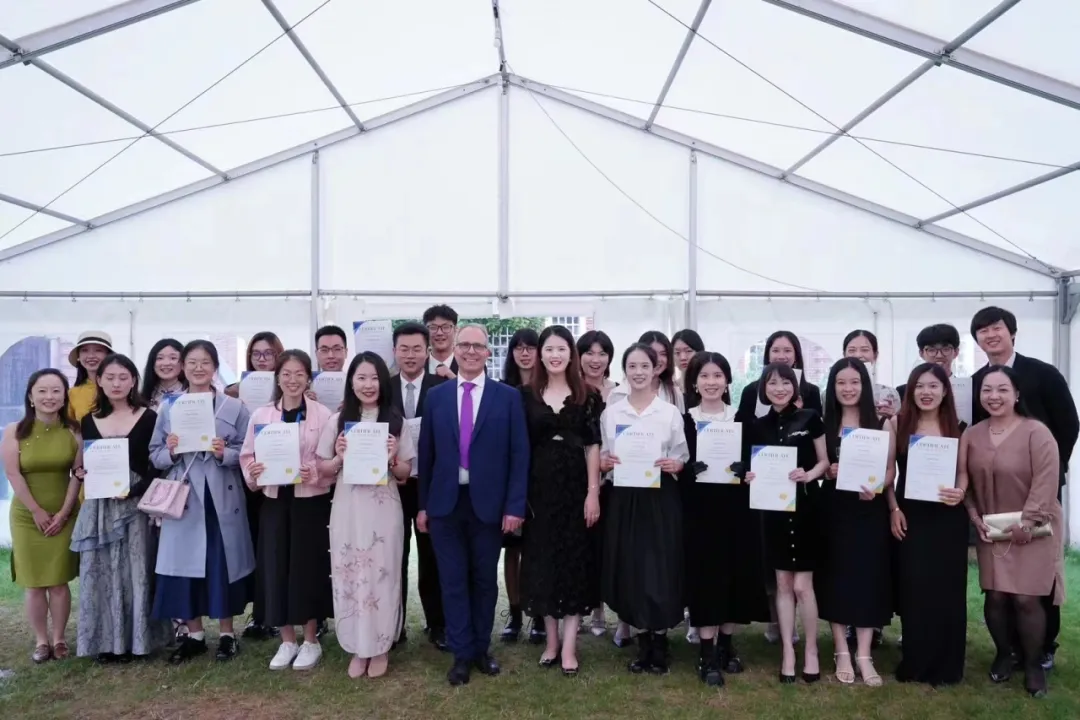
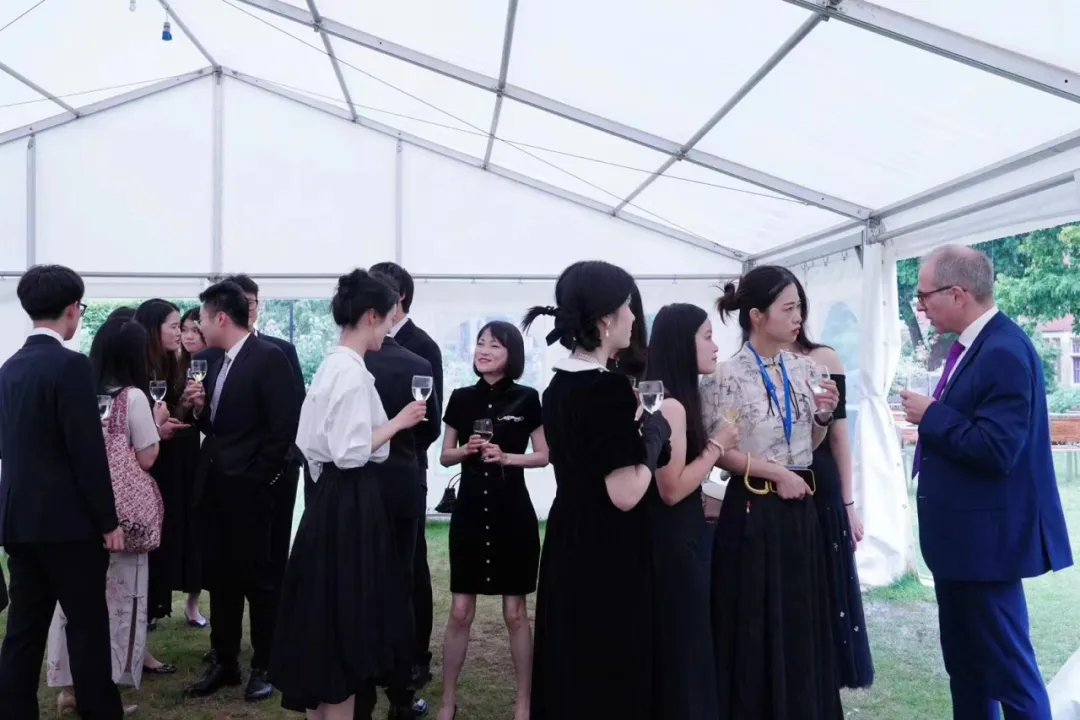
During the formal dinner, teachers and students had a lively discussion on topics such as Oxford life, academic views, career planning and life experiences, sharing each other's own stories and experiences. Teachers expressed their expectations and wishes for the students' future, encouraging them to go forward in their new life path. The students, on the other hand, recalled their good time in Oxfordexpressed their gratitude to their teachers for their devotion.
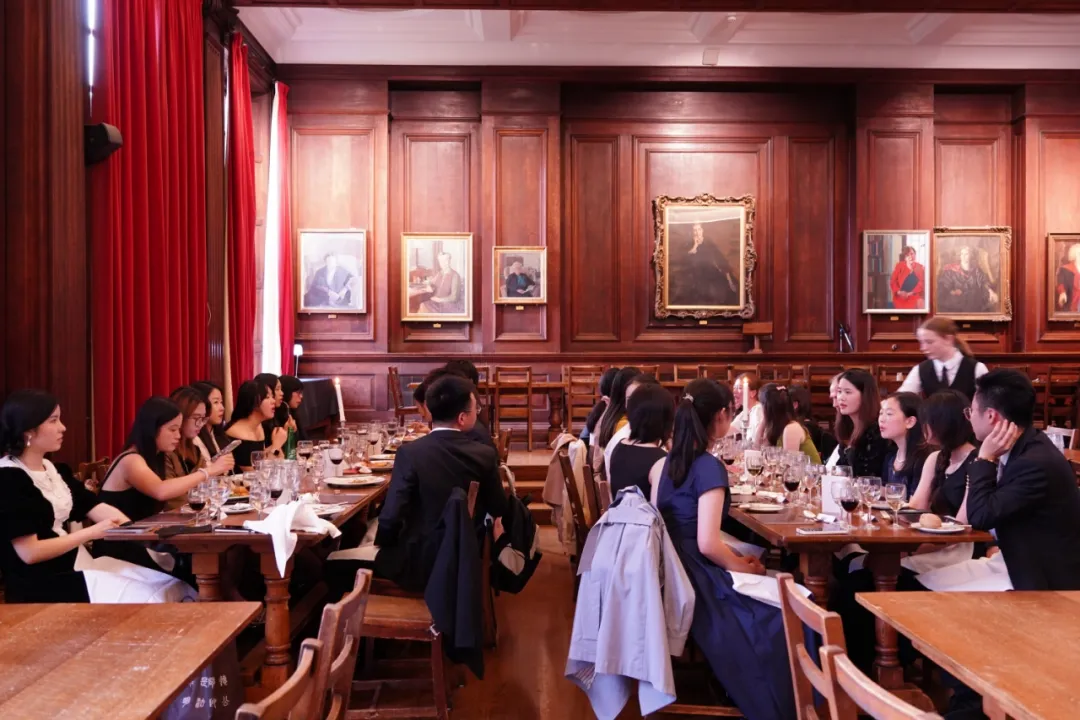
PART 2 Wisdom of Britain with cross-border talk: Enlighten the collision of thinking and explore the academic frontier.
Contract Law Course
In the first week of the summer school, Professor Stefan Enchelmaier of Lincoln College, University of Oxford, gave students a detailed lecture on the core content of English contract law, which mainly involved the organizational structure and historical evolution of English contract law, the formation of contract and the creation of obligations, the breach of contract, and the relativity of contract.
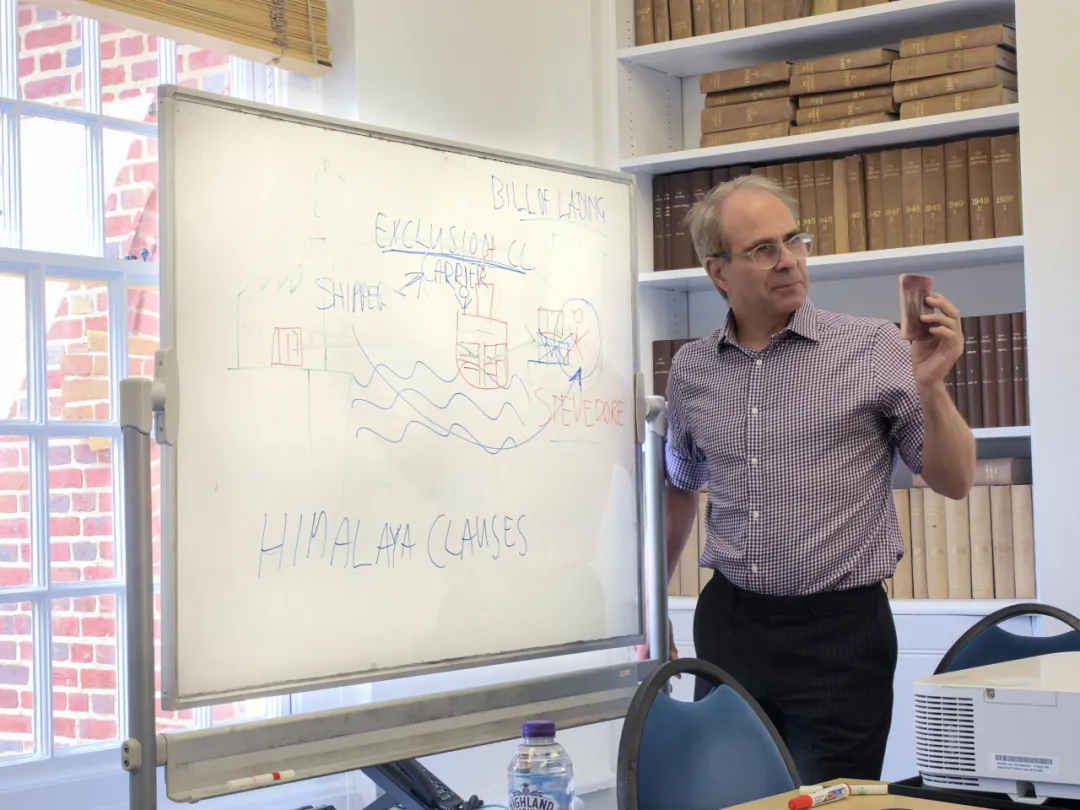
(1) Organizational and historical evolution of contract law
On July 15, Professor Stefan focused on the historical evolution of English contract law, emphasizing the everlasting legal tradition since 1066 and its global impact. Citing Lord Mansfield's famous quote from Vallejo v. Wheeler in 1774, the professor emphasized the importance of certainty in commercial law. Centering on the 1818 case of Adams v. Lindsay, he elaborated on the “postal rule”, a fundamental concept and peculiar to English contract law, which provides that once an offeree accepts an offer by post, a contract arises even if the letter expressing acceptance of the offer is lost en route before it reaches the offeror. In this regard, the Professor also provided comparative law insights, contrasting the differences between English law and the French and German legal systems in terms of contract formation, acceptance and the binding nature of the offer.
Formation of the contract and creation of obligations
On July 16, the course focused on the formation of a contract and the creation of obligations, and began with a discussion of the basic elements of contract formation, including certainty, the intent of the legal relationship, express and implied terms, consideration, and the process of bargaining. By analyzing the application of “consideration” in contract law, Prof. Stefan explains the rule of deliberation, the importance of economic value, and the validity of consideration in special circumstances. Through specific case studies, he emphasized the key role of consideration in the formation of a contract and the various factors that need to be taken into account when assessing the validity of consideration. The professor delves into an important principle of contract law, the principle of consideration and promissory estoppel, emphasizing the centrality of consideration in contractual modification and the role of promissory estoppel in restricting and balancing the enforcement of contracts. By clarifying the role of consideration and the scope of application of promissory estoppel, it provides clear guidance for understanding and applying contract law.
Breach of contract
On July 17, Prof. Stefan gave a lecture on breach of contract in English law and a brief comparative analysis of this part of English law and German law, which, according to Prof. Stefan, embodies the natural nature of the contract, whereas German law embodies the natural nature of the obligation. In English law, the termination of the contract depends on the choice of the party without fault. When the contract is terminated, the obligations that have not yet arisen from the contract are also terminated, but the obligations that have arisen prior to the termination of the contract still exist, and these obligations still have to be fulfilled. Under English law, a breach of contract also entitles the innocent party to damages, which may be calculated on a pro rata basis according to the benefit to be gained or the loss to be avoided, with the specific difference being calculated as the difference between the actual performance of the contract and the benefit that would have been gained by the due performance of the contract. In addition to damages, the party not at fault may also claim compensation for reliance benefits, i.e., the costs of futility and other losses incurred in the expectation that the contract will be properly performed, especially if the expectation benefits are difficult to calculate. However, the compensation for the benefit of reliance cannot exceed the amount of damages. Although the English contract law and civil law countries contract law rules are not the same, but as Professor Stefan said, the problem solution of English contract law and German law are of different starting point, but ultimately can realize the convergence.
Privity of contracts
On July 18, Professor Stefan started the course around contract privity, discussing the creation of contractual obligations and breach of contract, including remedies for breach of contract based on the principle of damages, explaining the application of the principle of estoppel to the issue of contract avoidance, and describing the protection of the parties by the law of equity. On this basis, the professor further explored the issue of liability in the carriage contracts, emphasizing through specific case studies that stevedores may be liable for damages even though they are not a party to the contract between the shipper and the carrier. This provided a clear framework for understanding the concept of relativity in contract law and guidance for its practical application. The professor also analyzes the issue of third-party performance in contract law, emphasizing the importance of clear wording in contracts to determine third-party enforceability. The course clarifies the definition, necessary conditions and legal principles of relativity in contract law by exploring the rules of relativity in contracts, and explains the application and limitations of the rules of relativity to the assumption of obligations and the burden of risk in different scenarios by means of concrete cases. At the end of the course, Prof. Stefan briefly reviewed the three core issues of the course: how obligations arise, how they survive, and how they are enforced.
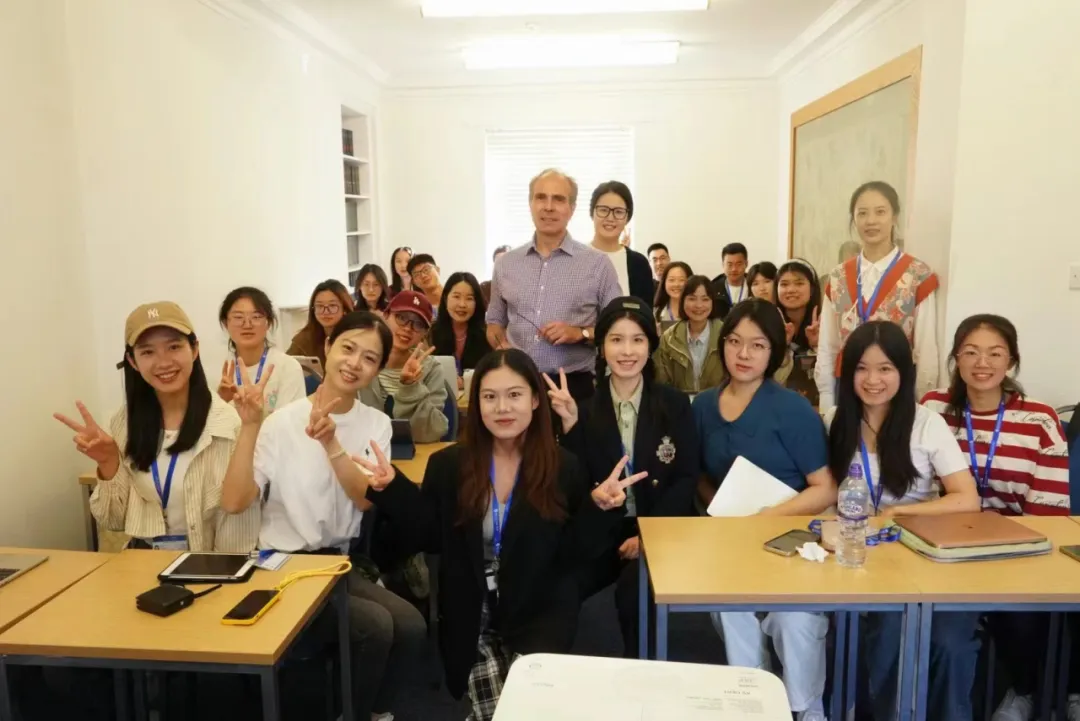
International Disputes Settlement Course
The second week of the program featured a course on international disputes settlement Criminology Center Fellow Rudina Jasini, who has served as a lawyer at the United Nations International Criminal Tribunal for the Former Yugoslavia in The Hague. She has also worked with legal teams to represent and assist victims of the Khmer Rouge regime in Cambodia.
The theme of the course focused on international dispute resolution, covering not only the definition and distinction between international and domestic disputes, but also an in-depth look at the various types of peaceful dispute resolution. First, Fellow Jasini introduced the concept of “international disputes” and the two main modes of peaceful dispute settlement: diplomatic and political negotiations and legal arbitration and adjudication. She then introduced the two main institutions of international dispute settlement, the International Court of Justice (ICJ) and the International Criminal Court (ICC), and explained the Nicaragua Military and Paramilitary Activities case, the Corfu Channel case, and the 1994 Rwandan Genocide case to the students. Through in-depth explanations, the course provided students with a comprehensive understanding of the various ways of international dispute settlement and the theoretical knowledge of various means of dispute settlement, and through case studies, the course introduced the role and challenges of the international judicial system in combating serious international crimes and upholding international justice.
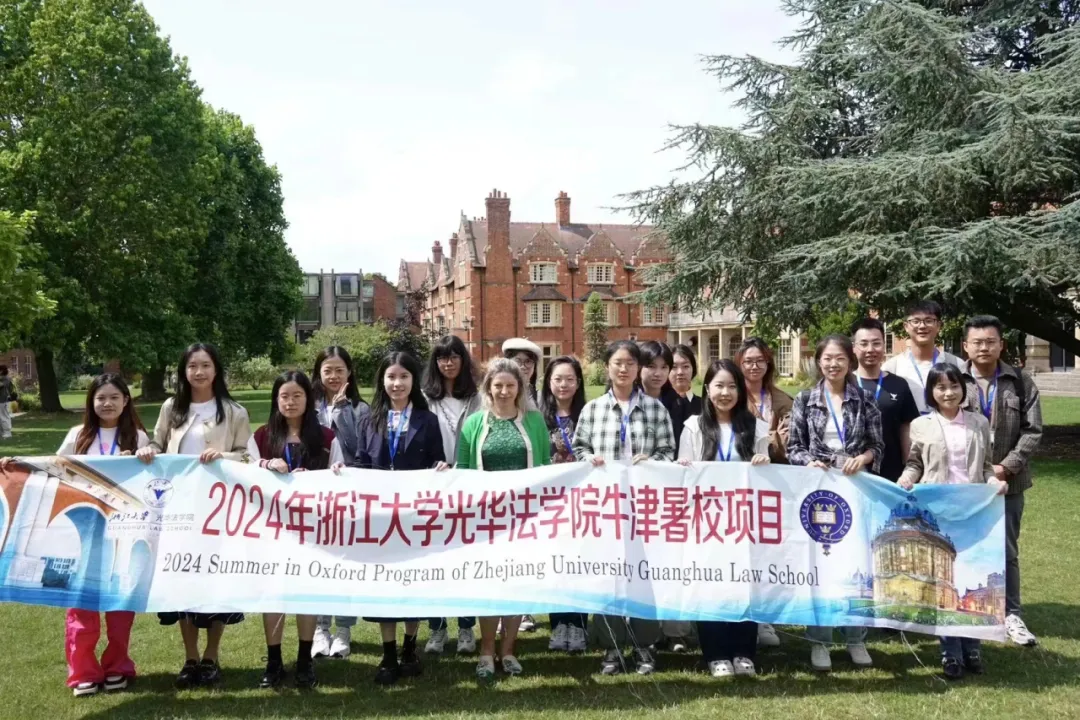
Library
The students visited the Old Bodleian Library and the Weston Library (and some other libraries, which are all constituent parts of the library system of Oxford University) in a group. Students were deeply attracted by these libraries with hundreds of years of history. The Old Bodleian is one of the oldest public libraries in the world, with a rich collection of rare documents and manuscripts from a wide range of disciplines. Weston Library, on the other hand, is known for its advanced facilities and comfortable learning environment, providing an ideal place for academic research for current students.
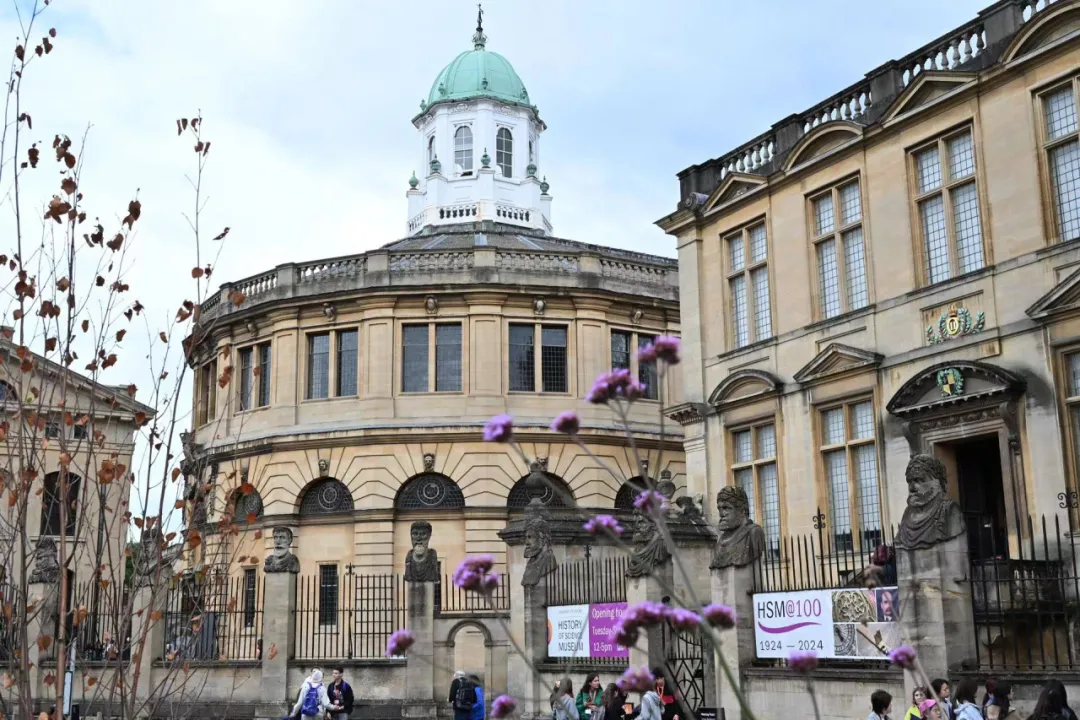
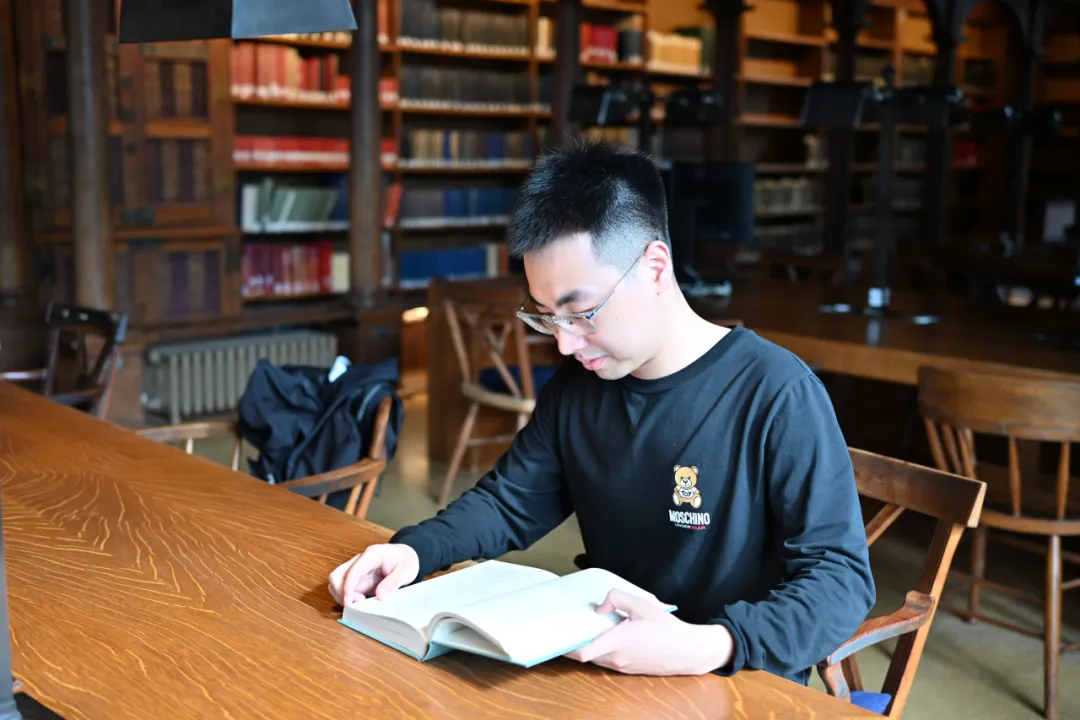
The Royal Courts of Justice
On July 19, the students visited the Royal Courts of Justice in London. The staff introduced in detail the historical development of the Court, its functional structure, architectural features, as well as its operation and important position in the British judicial system. Built in the 19th century, the Royal Courts of Justice is one of the most important judicial institutions in the United Kingdom, responsible for handling all kinds of major civil and criminal cases. The staff gave an in-depth explanation of the judicial system of the UK, introduced the different types of courts in the UK, including the Court of First Instance, the High Court and the Court of Appeal, etc., and explained the functions of each type of court and the process of handling cases. She led the students on a tour of the courtroom, introduced the basic process of a trial and the roles of the various participants, and explained the importance of the jury system in the UK judicial system. The students showed great interest in the unique common law system of the UK, and the staff answered their questions about case law in detail. Through the field observation and vivid explanation, the students had a more intuitive understanding of the actual operation of the British justice.
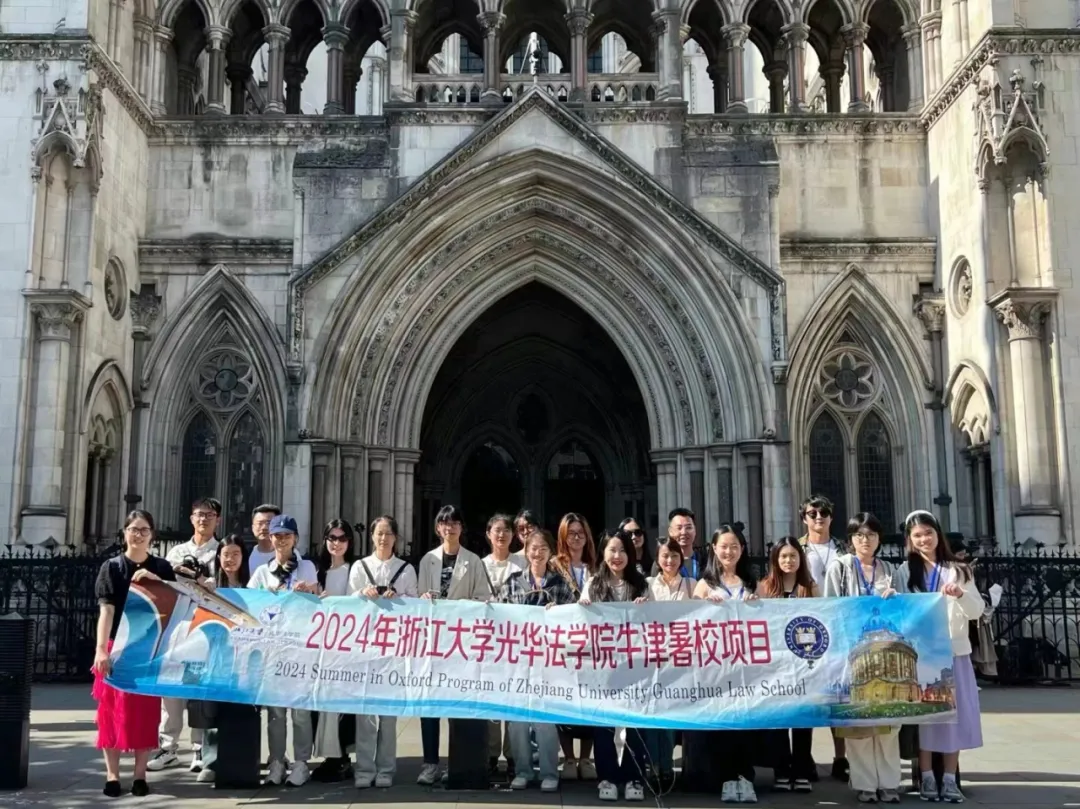
Oxford Students Union
On July 21st, our faculty and students visited the Oxford Students Union. Founded in 1823, Oxford Students Union is one of the world's most famous organizations for academic debates and speeches. It has hosted many world-renowned politicians, scholars and celebrities who have delivered speeches and participated in debates here. With its historic buildings and elegant interiors, the Union is an important part of Oxford's cultural and academic life, inviting speakers from all walks of life to Oxford to share lectures and organizing weekly formal debates on a variety of topics between students and representatives from all walks of life. The Union is run by students, with a range of positions and committees responsible for organizing events, managing finances and maintaining facilities. Each year, the Union holds elections to choose a new President and management team, and these positions are often highly contested. One of the core facilities of the Oxford Union is the Debating Hall, with its historic atmosphere and elegant decor. It is the main venue for the Union's debates and speeches, which cover a wide range of political, social, cultural, and scientific topics and are controversial. The debates include not only students, but also experts and celebrities from all over the world, such as Churchill, Clinton, Mandela and Stephen Hawking.
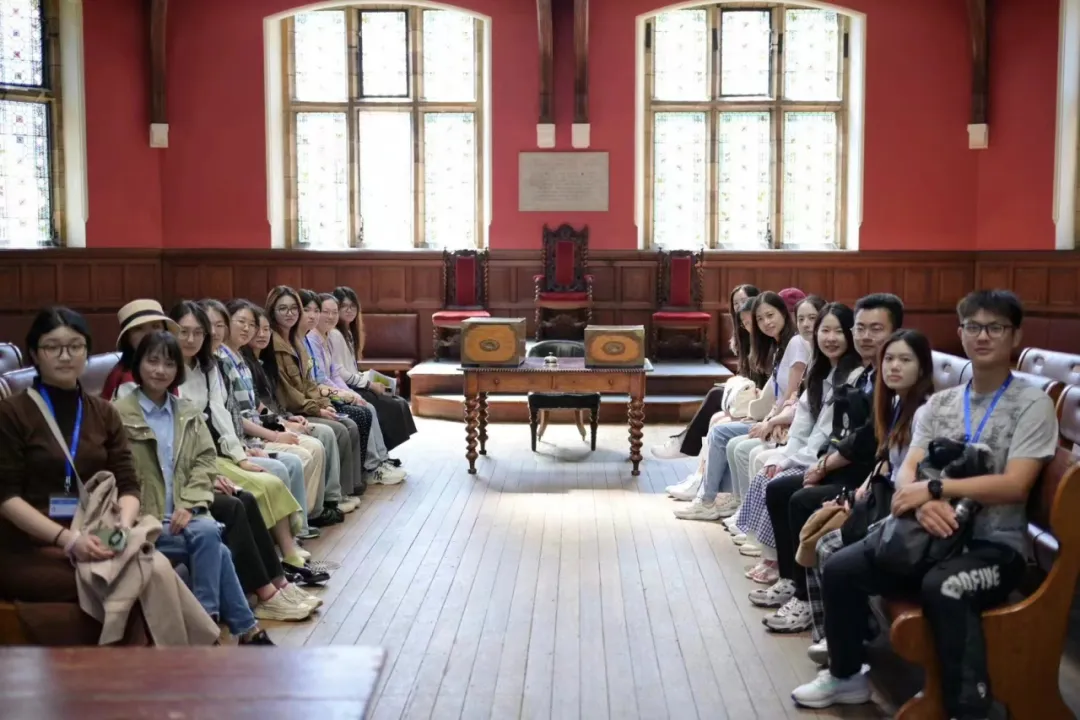
University of Cambridge
On the morning of July 23rd, our faculty and students traveled from Oxford to Cambridge for a visit. The University of Cambridge is located in Cambridgeshire, England, which is the second oldest university in the English-speaking culture and the fourth oldest existing university in the world. The origin of Cambridge University is that a group of scholars from Oxford University moved to Cambridge because of the conflict with the citizens of Oxford. Cambridge and Oxford, two British universities founded in the Middle Ages, are so similar in terms of operation, academic reputation and social status that they are often referred to as “Oxbridge”. Upon arrival, students and teachers first took a guided tour of Cambridge, visiting its landmarks and learning about its deep historical background. Afterwards, some students experienced a river cruise, which is very characteristic of Cambridge, and felt the beautiful environment of Cambridge on the quiet river.
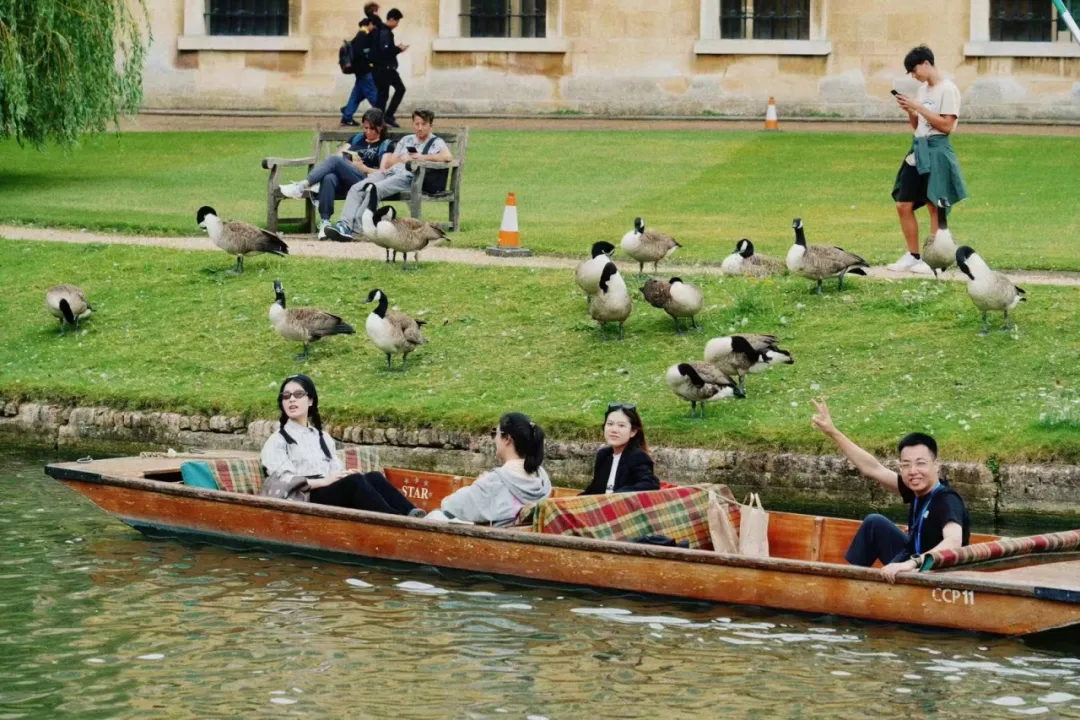
In the afternoon, teachers and students visited King's College, the most prestigious college in Cambridge, which was founded in 1441 by King Henry VI of England. His original design was frugal, but as the purpose of the college's construction shifted from 1445 onwards to emphasize the status of the royal family, the scale of the college's building became quite grand. Other buildings are also steeped in history, including the college's library, student dormitories, and academic buildings. The entire campus is architecturally unified, reflecting the grandeur of Gothic architecture while incorporating many modern elements. Students and faculty strolled around the college to exchange ideas and take photos.
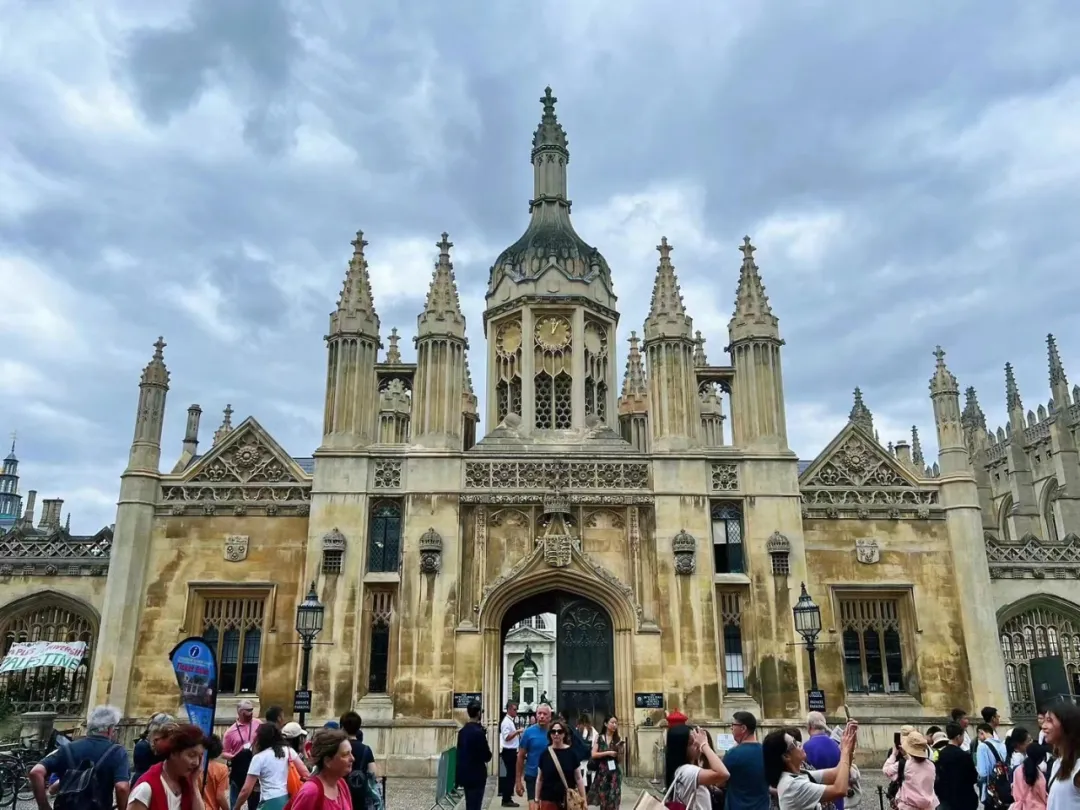
PART 3 Cultural British Immersion Tour: Travel through History and Savor the Essence of Art
Oxford Treasure Hunt
In Oxford students embarked on a journey of cultural and academic discovery. In addition to the intense study, the students experienced the unique British atmosphere of Oxfordshire. Oxfordshire, located in the southeast of England, is a region known for its rich history, culture and beautiful natural landscapes. The city of Oxford developed into a major academic and trading center during the medieval period. Many of the city's buildings, streets and university colleges retain their medieval appearance, adding to the city's unique historical charm. In order to speed up the students' familiarization with the geography of Oxford, an activity called Oxford Treasure Hunt was carried out. The students were divided into four groups and were responsible for finding the places and objects in the task list that were closely related to Oxford. Each group of students actively participated in the activity, and through the prompts of the task cards, they explored all corners of Oxford, including the famous colleges of Oxford University, the library, as well as some hidden alleys, stores, and the iconic local street art-- the bulls, and so on.

St. Mary's Cathedral
St. Mary's Cathedral is not only one of the landmarks of the University of Oxford, but also the center of Oxford's religious and academic life. Students learned about the historical background of the church, its architectural style, and its important place in the history of Oxford University. St. Mary's Cathedral is known for its Gothic architecture. The architectural features of the church include a soaring spire, beautiful stained glass windows and intricate stonework, and the magnificent stained glass and fine carvings in the church were a source of admiration. Students learned about the historical background of the church, its architectural style, and its importance in the history of the University of Oxford. The tower of the church is one of the highest points in Oxford, and the students climbed to the top of the tower to have a beautiful view of the whole city of Oxford and the surrounding area.
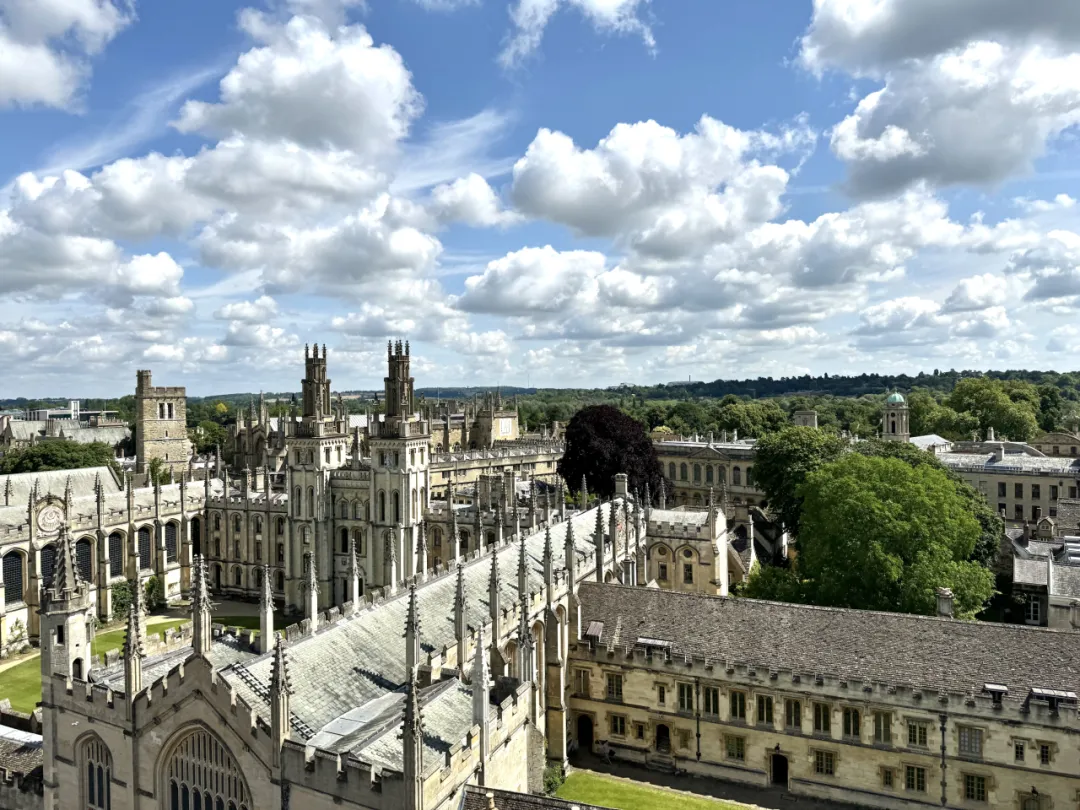
Museum of the History of Science
The Museum of the History of Science has a large collection of valuable exhibits related to the history of science, the most famous of which is the Einstein Blackboard. This blackboard records the formulas written down by Einstein himself in a lecture at Oxford University, which has become an important relic in the science history. Through the visit, students learned about the history of scientific development and the outstanding contributions of scientists, which stimulated their keen interest in scientific exploration.
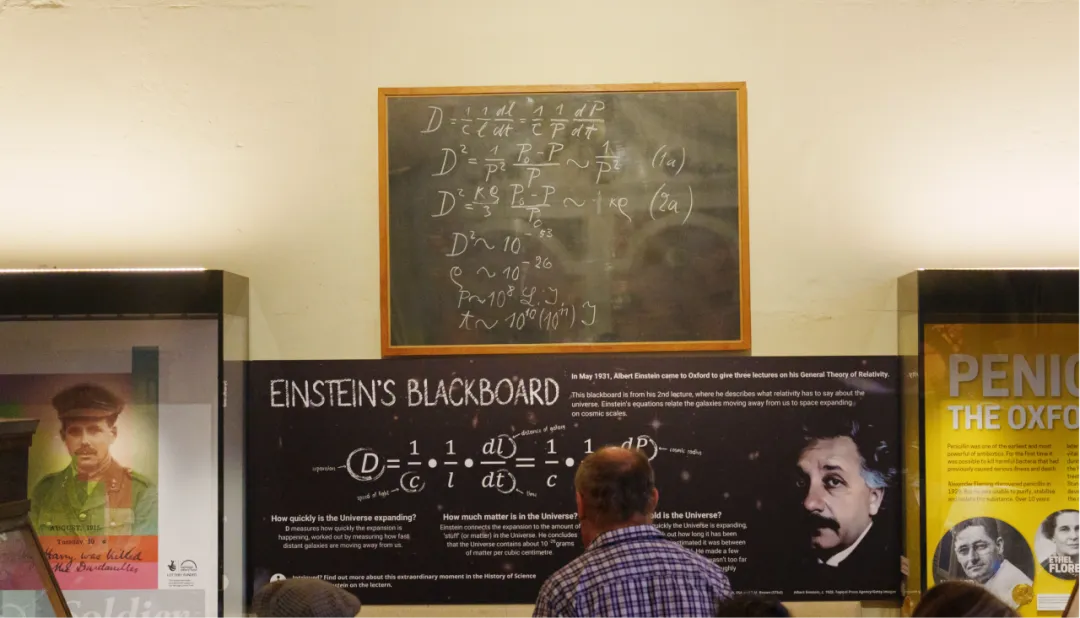
Visits to Colleges of Oxford University
As mentioned earlier, each of the colleges at the University of Oxford has its own unique traditions and culture. In addition to Oriel and Somerville Colleges, the students also explored Christ Church College, Trinity College, and Magdalen College in Oxford, among which Christ Church is popular among tourists for being the setting of the movie Harry Potter, and has subsequently become a famous attraction open to tourists in Oxford University. The Great Hall, known for its grand interiors and historic atmosphere, was also one of the filming locations for the Hogwarts refectory in the Harry Potter movie. The long tables, murals and decorations in the refectory make it seem as if you are on the scene of a medieval feast.
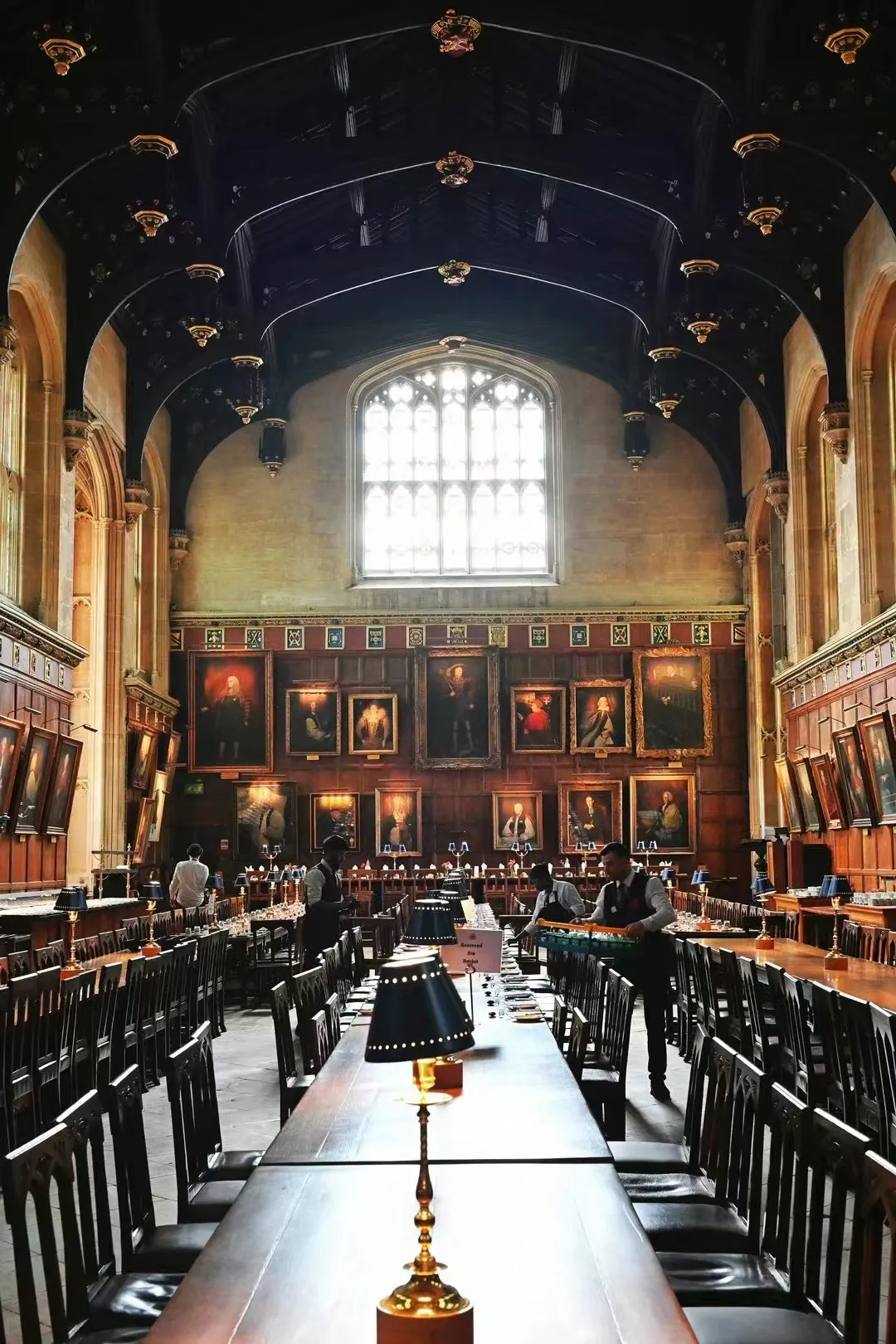
City Tour to London
On July 19th, the students of the group traveled to London by bus and visited a number of famous attractions in the core area of Westminster, London. St. James's Park has a long history and is very picturesque. The students strolled along the boulevard of the park, admiring the lakes, flower beds and various wild animals in the park, and felt the unique natural beauty of London.Under the guidance of the tour guide, students learned about the historical and cultural values of Big Ben, the Houses of Parliament, Buckingham Palace and other buildings as well as some interesting anecdotes. In addition, some students went to the British Museum and the National Gallery on their own. Students were touched by these magnificent buildings, stunning works and the stories behind them, which deepened their understanding of the human history of the UK and even the history of the world, and enhanced their international vision and cultivated their artistic sensibilities.
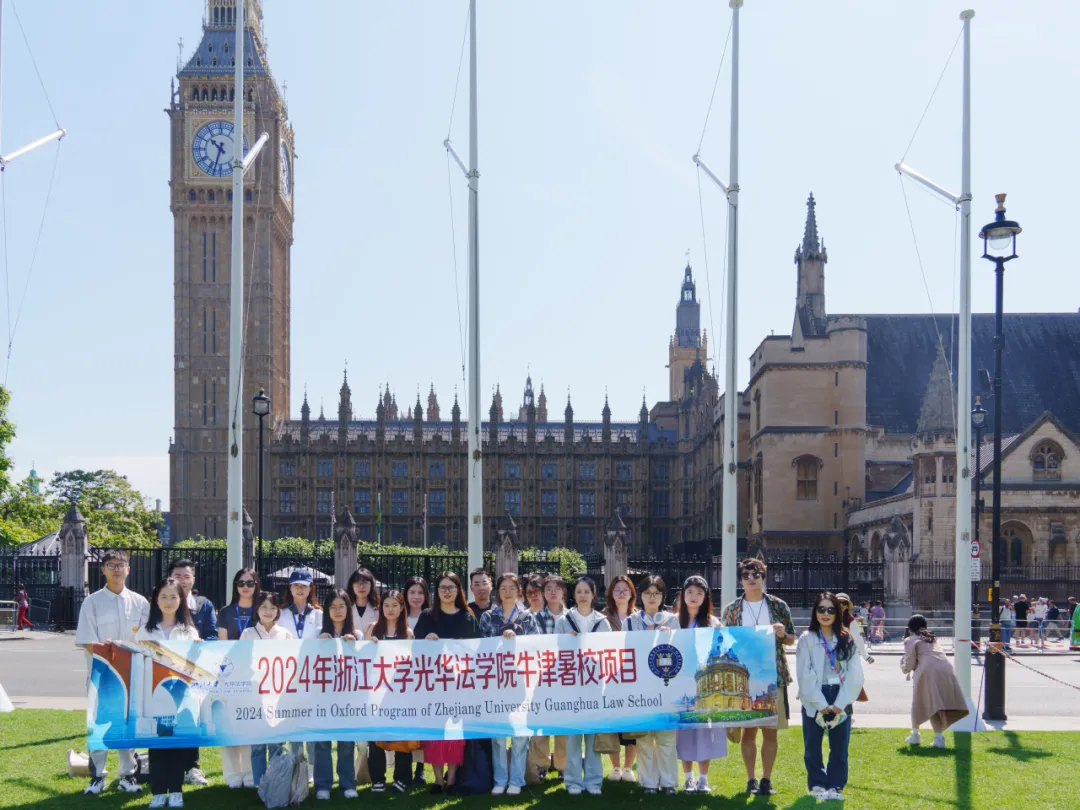
Students all expressed that by participating in the summer school program, they not only broadened their international horizons and deepened their understanding of different legal systems, but also laid a solid foundation for their future legal careers. Guanghua Law School will continue to carry out diversified international exchange programs, improve the practice-oriented cultivation mechanism, and actively strive to cultivate high-quality foreign legal talents with both moral and legal skills.

